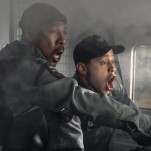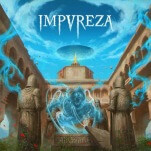Our Favorite Comic Book Politicians
The race to the White House has never seemed so surreal. Former reality TV business magnates are brandishing Mexican walls and Twitter feuds, while no-BS democratic candidates are ready to usher the United States into functional socialism. These are things that are happening! No matter whether you ride the elephant, donkey or alternative political animal, it’s a weird, loud time to tune into the state of the union. This commotion made the Paste Comics Team reflect on some of our favorite political figures to grace comics. Some may turn into coin-flipping noir villains and others may actually be delusional emperors, but their antics are getting less and less sensational with each passing day. Let us know your favorite sequential art politicos in the comment section.![]()

Emperor Norton
The Sandman #31 by Neil Gaiman and Shawn McManus
Suffice to say, real-life historical figure Joshua Abraham Norton was never the Emperor of the United States, despite 21 years of press campaign and assertions otherwise. That said, he did spend much of the late 19th-century parading around the streets of San Francisco in a beaver hat, issuing his own currency, proclaiming edicts and holding town meetings to “remedy the evil complained of.” As one of the most surreal footnotes of yesteryear, Neil Gaiman adopted this tale into his postmodern Sandman mythos. In the issue “Three Septembers and a January,” the character Despair (who is actually the personification of sorrow) challenges her brother Morpheus (the dream king responsible for the all the times you’ve retaken your calculus finals with alligator hands while your mom sings Cindi Lauper karaoke) to save a man from her buzzkill realm after his business implodes. That man, Joshua Abraham Norton, then followed a dream that salvaged his life and delighted those around him—30,000 mourned his passing. Norton may not have been an elected politician, but Gaiman and artist Shawn McManus portrayed a charismatic, inspirational figure whose legacy surpasses that of most presidents. An emperor indeed. Sean Edgar![]()
As a character that lives and dies based on the idea of vigilante justice, it’s no surprise that one of Batman’s most enduring foes is politician Harvey Dent. The Gotham District Attorney is a manifestation of voters’ worst nightmares: an elected official who, quite literally, exposes a completely different side of himself once in office. Often, within Batman tales, Dent’s politics are supposed to serve as the counter to Bruce Wayne’s home-brewed justice; he’s a beacon of hope that one day, a rich dude in tights won’t have to pummel clowns, crocodiles and scarecrows. Of course, as with any Dent tale, the fall is inevitable and fast as a flask of acid to the face—and further warning to keep an eye on public officials deemed trustworthy. Tyler R. Kane![]()

Kenneth Yamaoka
Eagle: The Making of an Asian-American President by Kaiji Kawaguchi
Five meticulous volumes of addictive political subterfuge, Eagle: The Making of an Asian-American President dissects the ingrained realities of race and how it might affect a POC pursuing the White House. Kenneth Yamaoka did his homework in the series: his alternate history 2000 presidential campaign isn’t exactly subtle (hello, Billy Clayton and Al Nore), but it is dense and obsessive. Is Democratic candidate Kenneth Yamaoka the embodiment of the American Dream? Is he a hardworking example product of the land of opportunities, smacking down gun groups? Or is he kind of a sketch ball who abandoned his son, journalist Takashi Jo. The real answer is that Yamaoka is both and so much more. In other words, he’s a politician. Sean Edgar![]()
_Lex_2000_Vol_1_1.jpg”>_Lex_2000_Vol_1_1.jpg” src=”http://www.pastemagazine.com/articles/assets_c/2015/09/Superman_-_Lex_2000_Vol_1_1-thumb-479×733-357383.jpg” width=”479″ height=”733″ class=”mt-image-center” style=”text-align: center; display: block; margin: 0 auto 20px;” />
Lex Luthor
Superman: Lex 2000 by Jeph Loeb, Others
Depending on which side you’re on politically, each ideology has its own Lex Luthor counterpart. But DC comics made a pretty bold statement in 2000 by appointing the chrome-dome menace in the POTUS position. The Triumph Over Tragedy storyline told the tale of how Luthor came to power—his platform, unsurprisingly, is based on progressing in the tech sphere—and led to a too-good-to-be-true tale about re-integrating Gotham into the United States. Turns out, he might have had a part in Gotham’s initial problem. But, more importantly, who thought this was a good idea to begin with, AMERICA? Tyler R. Kane![]()
-

-

-

-

-

-

-

-

-

-

-

-

-

-

-

-

-

-

-

-

-

-

-

-

-

-

-

-

-

-

-

-

-

-

-

-

-

-

-

-














































